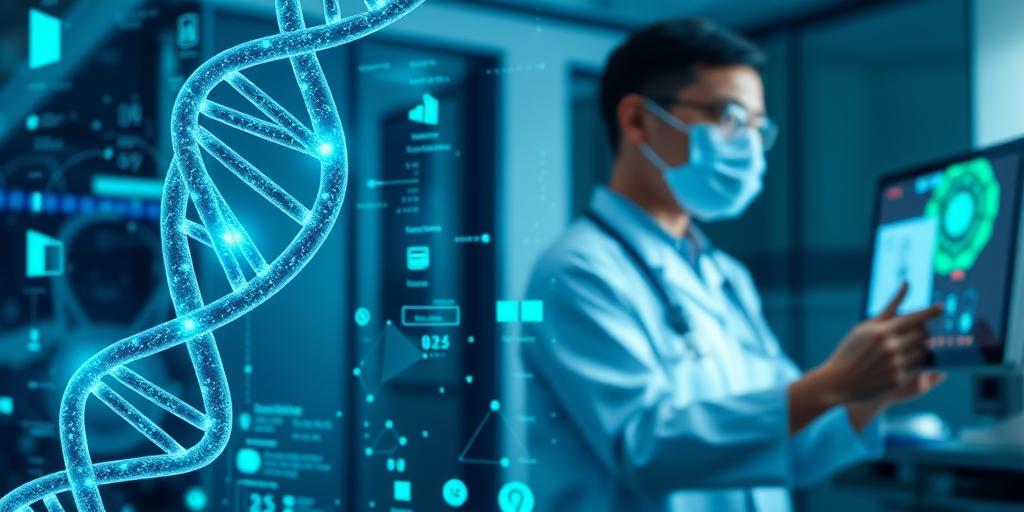Innovations in Medical Science
The field of medical science is in a perpetual state of evolution, driven by relentless research, technological advancements, and a profound desire to improve human health. This article explores some of the most groundbreaking innovations that are reshaping healthcare as we know it.
Gene Editing Technologies
Gene editing, particularly with tools like CRISPR-Cas9, has revolutionized our ability to manipulate the building blocks of life. This technology allows scientists to precisely target and modify specific DNA sequences, offering potential cures for genetic diseases. Clinical trials are underway for conditions such as sickle cell anemia and cystic fibrosis, showing promising results. The precision and efficiency of gene editing hold immense potential for treating previously incurable diseases.
Immunotherapy in Cancer Treatment
Immunotherapy has emerged as a powerful approach to fighting cancer by harnessing the body's own immune system. Unlike traditional chemotherapy, which targets rapidly dividing cells (both cancerous and healthy), immunotherapy boosts the immune system's ability to recognize and destroy cancer cells. Checkpoint inhibitors, CAR-T cell therapy, and cancer vaccines are among the innovative immunotherapeutic strategies currently being explored and used in clinical practice.
Advancements in Medical Imaging
Medical imaging techniques have advanced significantly, providing increasingly detailed and non-invasive ways to diagnose and monitor diseases. High-resolution MRI, PET scans, and ultrasound technologies enable clinicians to visualize internal structures with unprecedented clarity. These advancements facilitate earlier and more accurate diagnoses, leading to more effective treatment plans. Furthermore, the integration of artificial intelligence (AI) in image analysis enhances the ability to detect subtle anomalies that might be missed by the human eye.
Telemedicine and Remote Patient Monitoring
Telemedicine has expanded access to healthcare, particularly for individuals in remote or underserved areas. Through virtual consultations, remote monitoring devices, and digital health platforms, patients can receive timely and convenient medical care from the comfort of their homes. Remote patient monitoring devices track vital signs and other health metrics, allowing healthcare providers to proactively manage chronic conditions and intervene when necessary. This technology is transforming healthcare delivery, making it more accessible, efficient, and patient-centered.
3D Printing in Medicine
3D printing is revolutionizing various aspects of medical science, from creating customized prosthetics and implants to bioprinting tissues and organs. 3D-printed prosthetics can be tailored to fit individual patients perfectly, improving comfort and functionality. Bioprinting holds the potential to create functional human tissues and organs for transplantation, addressing the critical shortage of organ donors. This technology is rapidly advancing, promising transformative changes in regenerative medicine and personalized healthcare.
Nanotechnology in Drug Delivery
Nanotechnology offers innovative solutions for targeted drug delivery, enhancing the efficacy and reducing the side effects of medications. Nanoparticles can be engineered to encapsulate drugs and release them specifically at the site of disease, such as cancer tumors. This targeted approach minimizes exposure to healthy tissues, improving treatment outcomes and patient well-being. Nanotechnology is also being explored for diagnostic purposes, enabling early detection of diseases at the molecular level.
Artificial Intelligence and Machine Learning
Artificial intelligence (AI) and machine learning (ML) are increasingly integrated into various aspects of medical science, from drug discovery to personalized treatment planning. AI algorithms can analyze vast amounts of data to identify patterns, predict patient outcomes, and accelerate the development of new therapies. ML models can assist in diagnosing diseases, predicting epidemics, and optimizing healthcare operations. The potential of AI and ML to transform medical science is immense, promising to improve the efficiency, accuracy, and personalization of healthcare.
Conclusion
Innovations in medical science are constantly pushing the boundaries of what is possible, offering hope for improved health outcomes and a better quality of life. From gene editing to telemedicine and artificial intelligence, these advancements are transforming healthcare delivery and creating new opportunities for preventing, diagnosing, and treating diseases. As research continues and technologies evolve, the future of medical science holds immense promise for addressing some of the world's most pressing health challenges.









